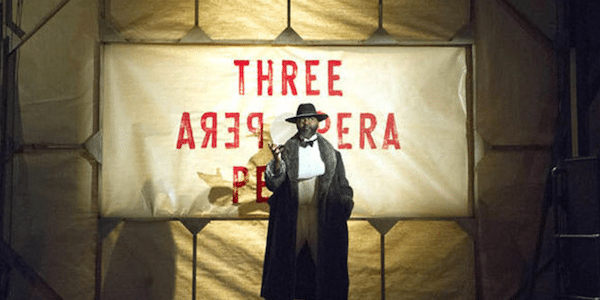Brecht and radically proletarian art
The majority of theatre broadly falls under the umbrella of dramatic theatre. It will have a linear plotline, actors who wholly inhabit well-developed characters, structured, thought-out themes, etc. Bertolt Brecht, the German Marxist playwright, would call it escapism.
Brecht held that “art is not a mirror with which to reflect reality, but a hammer with which to shape it,” which is essentially a reformulation of Marx’s statement that “the philosophers have only interpreted the world in various ways, the point, however, is to change it.”
These two quotations demonstrate Brecht’s intention: constructing a dialectical theatre.
In the late nineteenth century Henrik Ibsen, author of A Doll’s House, and others, pioneered a type of theatre that Brecht viewed as entirely bourgeois in its delivery, mainly because of its insistence on the audience experiencing a sense of catharsis (a great release of repressed emotions).
Such theatre perpetuated a rigid distinction between audience and stage and allowed the viewer to disappear into an “empathic” but inconsequential relationship with the victim of tragedy. Brecht insisted that an individual attending a production of A Doll’s House, for example, is offered the opportunity to live out their sympathy for Nora and their shame for her circumstances and, crucially, to share in her melancholic triumph, leaving the theatre feeling that they have washed their hands clean of the events through their empathy—a testament to their “exemplary” moral standards in the face of an evil world.
Brecht would not stand for this; he insisted that we are all plagued with the disease of inaction and apathy. He replied with a movement of his own: epic or dialectical theatre, a theatre that would force the viewer into uncomfortable engagement with theatrical depictions of class struggle and exploitation to awaken a sense of class-consciousness through forced criticality, ideally.
Estrangement was achieved using two crucial techniques, most relying on stage dynamics for full effect, the most important of which is Verfremdungseffekt (the alienation or estrangement effect). The aim is to make the audience aware that what they view is false and merely a means of demonstrating a particular lesson by means of relentless cognitive disruption. Actors would not assimilate with their characters, so little that they would often play multiple characters: they are only the deliverers of a tale (the actor is not X, they show X).
Stage dimensions would often be jarring and uncomfortable on the eye. Devices were often used to minimise the emotional impact of the events as much as possible; for example, before each scene in Mother Courage and Her Children a summary of what happens in the following minutes is delivered blandly by a narrator, to reduce shock and keep the audience focused and critical. Characters would frequently break the “fourth wall” and address the audience on the happenings of the play and sometimes appeal to their reason.
In one simple sense, these techniques keep the audience awake. But they also radically invert the nature of theatre, from a place of entertainment, where a political or sociological message may merely support the theatrics, to a place of education, where politics takes precedence, where an atmosphere of curiosity and rationality is encouraged, rather than one of emotion and catharsis.
The other primary component of Brecht’s theatre was historification. Considering what was just said, you might expect a Brecht play to take place in the reality of the time he was writing, perhaps in the ruins of a post-war German town or on the desolate plains of the war-weary USSR. But they occur in environments unfamiliar to the audience, at least insofar as they would not have experienced them. Mother Courage takes place during the Hundred Years’ War, The Threepenny Opera in nineteenth-century London, and The Good Person of Szechwan in pre-industrial China.
The purpose of this is to highlight the mechanisms of class conflict more vividly. The point is not to show which class dynamics affect the viewer’s life in the present but to show that class dynamics do shape material existence, and have done so ever since the genesis of class-based society.
Brecht was not interested in finding the root of anything universal to human existence, often the objective of dramatic theatre. He saw this as inward and ignorant of the ever-fluctuating existence mediated by the machine of class warfare.

